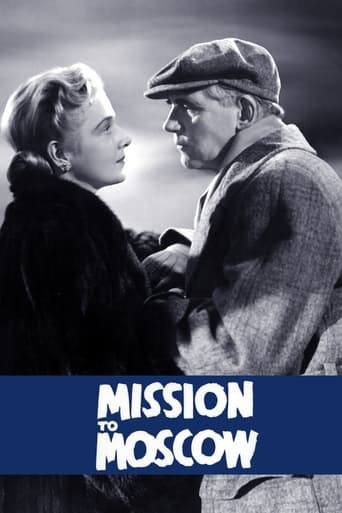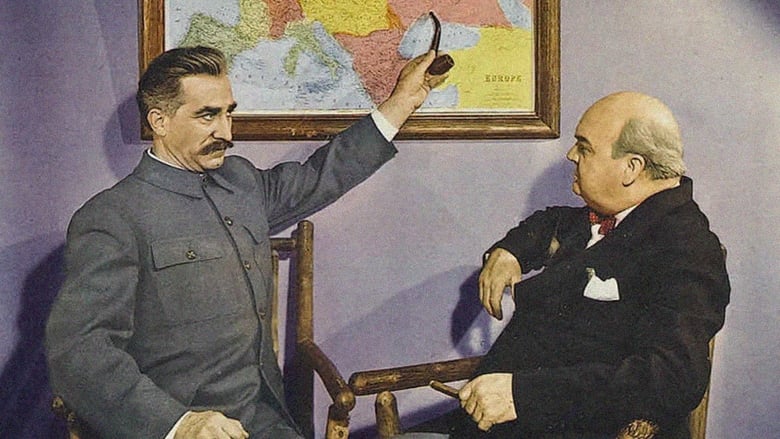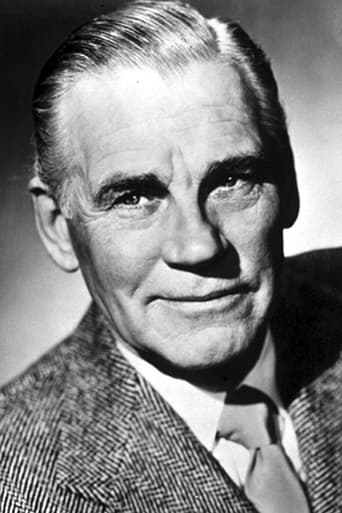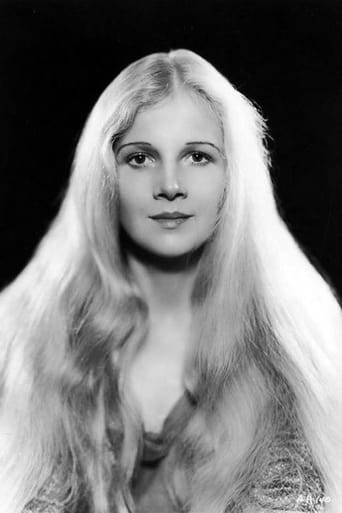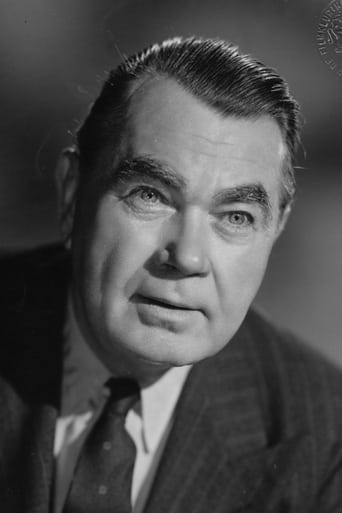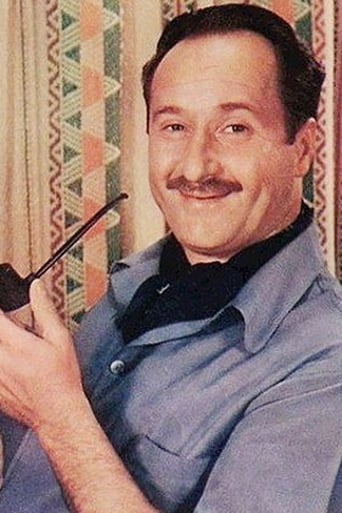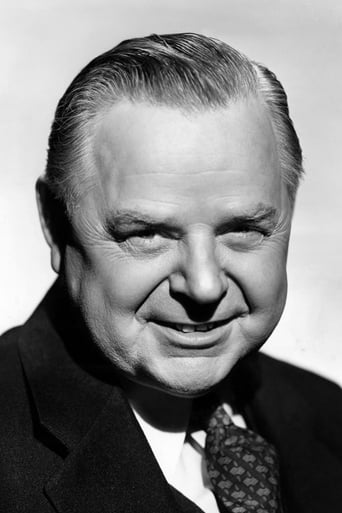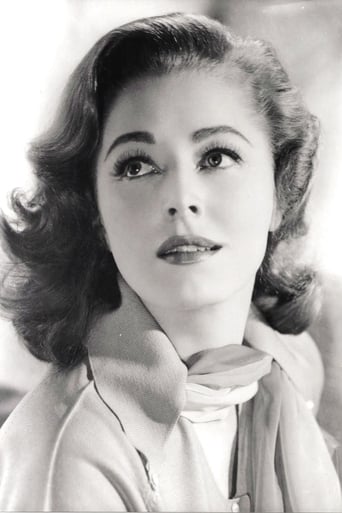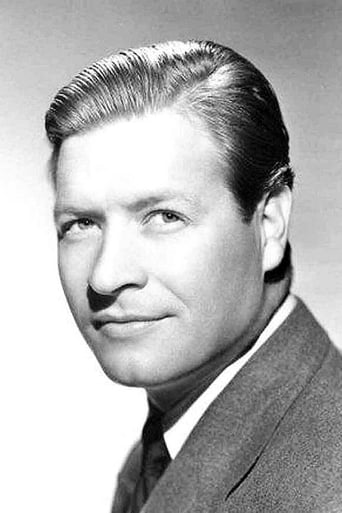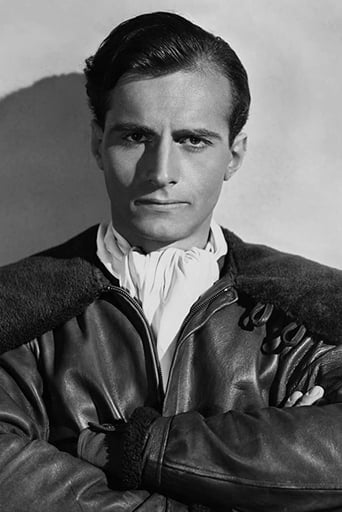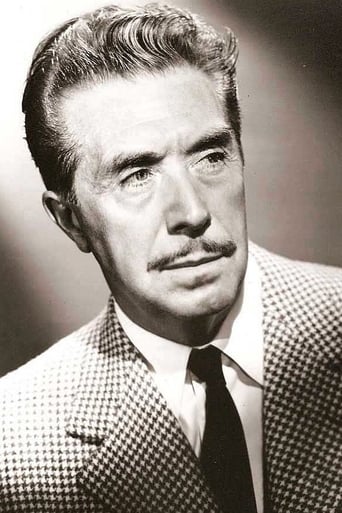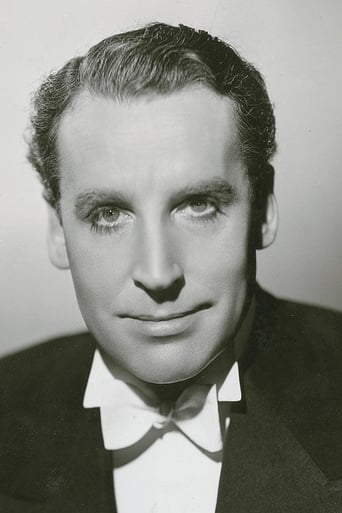Ambassador Joseph Davies is sent by FDR to Russia to learn about the Soviet system and returns to America as an advocate of Stalinism.


Similar titles
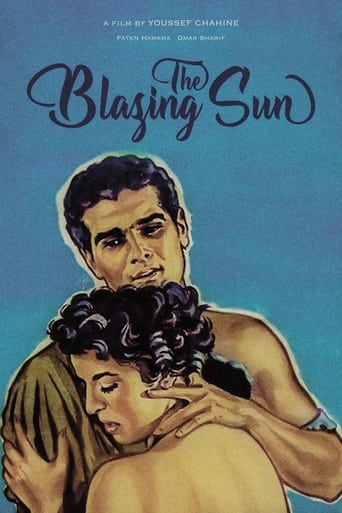
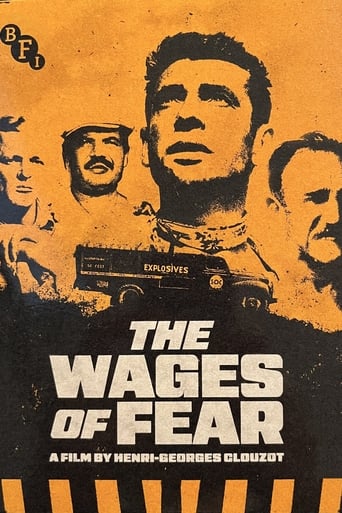

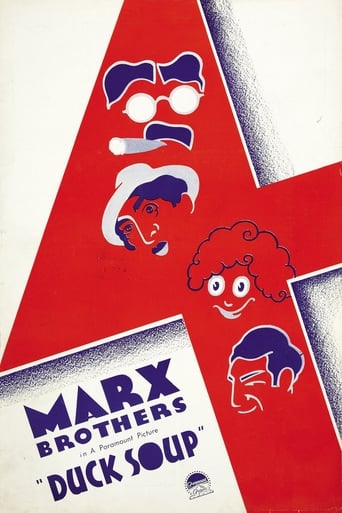
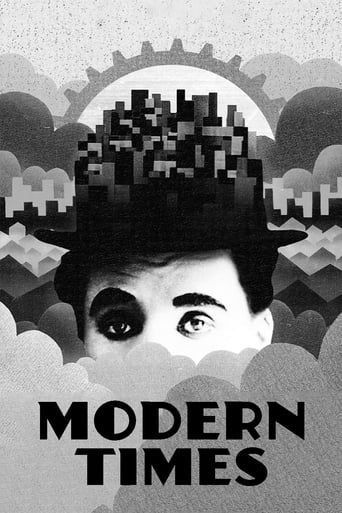
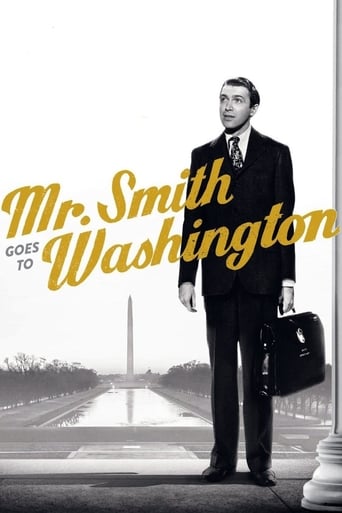

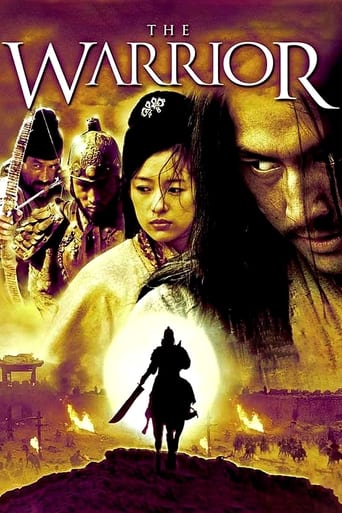
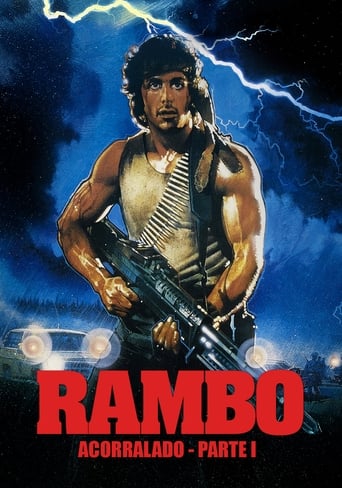
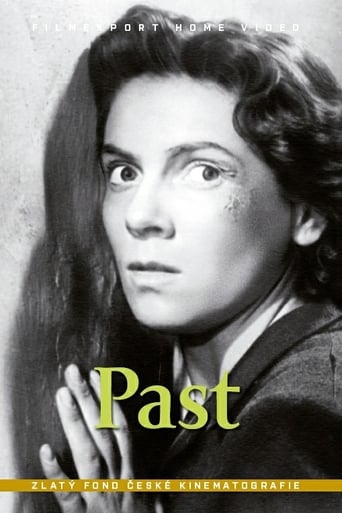
Reviews
Propaganda involves deception & exaggeration. This is not the case. The film is based on a book written in 1938; hardly Pro-Soviet propaganda when the US was militantly anti-communist at the time. This film version was only made because the US needed to make an alliance with the Soviet Union to defeat the Nazis. Big Corporations and Banks fearing the possibility of a workers' revolution in the US after WW1 and especially during the Great Depression, spewed non-stop anti-Communist propaganda denouncing ever aspect of the Soviet Union and Soviet Life. Of which most were just invented lies. This book and film therefore were very controversial when released. The controversy hovers over Davies' positive comments of Soviet Life & the famous Moscow trials conducted by the Soviet government.The Show Trials nicknamed "Purges" by the big Media Moguls like William Randolph Hearst depicted the Defendants as as innocent victims of Stalin's desire to consolidate power. In Davies' book and in this film version, the Defendants, including Leon Trotsky, are instead all depicted as 5th columnists; agents of Nazi Germany & Japan who tried to undermine the Soviet Union from the inside. Davies proclamation at the end of the trial scene that "Based on 20 years' trial practice, I'd be inclined to believe these confessions" created a situation where millions of moviegoers were viewing the "purged" Defendants as Nazi agents in a plot against the Soviet Union rather than as Hearst portrayed the Defendants as victims of the so-called Stalin "purges".This film stands as a fascinating historical document; refreshingly based on facts rather than anti-communist lies. Recent scholars such as Grover Furr (See Furr-Trotsky's Amalgams or the Murder of Kirov)have finally blown the lid on these high-ranking officials and their Nazi ties. This film is a true homage to the 26 million Soviet people who lost their lives fighting the Nazis to defend the world against Fascism.
What nation in history conducted a propaganda campaign to glorify another nation that it would then spend hundreds of billions of dollars to defend itself against? Or that would spend more than $5 trillion in a nuclear arms race? To those reading this review, the answer is obvious. The U.S. is the only country ever to produce so much propaganda in support of another nation that would soon oppose it. And, that's one of the unique things about this film. "Mission to Moscow" was the first of several Hollywood films to portray Soviet Russia as our good neighbor. The second thing about the film is that it was a sham.This isn't to knock propaganda, which has been used forever. For a good discussion of propaganda and its use, see the review by jacksflicks from Hollywood on April 6, 2004. The performances and film qualities of this movie are okay, but nothing special. It has a cast of prominent actors, as do most of the films that followed. But, why was a major propaganda effort launched then? Warner Brothers made this film at the behest of Pres. Franklin D. Roosevelt. He wanted a movie made from the book by his former ambassador, Walter Davies. That book glamorized the Soviet Union in 1938. But it was a lie, and FDR knew it. Davies supervised the script and everything about the film. The War Department then prevailed on other Hollywood studios to make pro- Soviet movies. After "Mission to Moscow" came out on April 28, 1943, a string of films followed. Columbia released "The Boy from Stalingrad" on May 20 of that year. Samuel Goldwyn and RKO Pictures put out "The North Star" on Nov. 4. The U.S. War Department made a full-length documentary on Nov. 11 that was filmed by a U.S. Army unit in Russia. Three more full-length Hollywood films followed in 1944: "Three Russian Girls" by United Artists on Jan. 14, "Song of Russia" by MGM on February 10, and "Days of Glory" by RKO on June 16, 1944.Most of these films are just fair. But they are unlike any of the other war films being made about resistance fighters and underground forces in other countries. These clearly are propaganda films. But why were they being made by the U.S. to promote another country way into the war? We no longer needed to build American support for Russia, or to urge the Soviets to enter the war on our side. We already had both.Russia was in the war since Germany invaded it on June 22, 1941. It now made the second front that the Allies wanted. England had been sending armaments and supplies to Russia. And, the Russians had stalled the Germans since Aug. 23, 1942, and then defeated them in the Battle of Stalingrad on Feb. 2, 1943. The Allies were winning elsewhere. Germany had lost the Battle of Britain in 1940, and it was fast losing the air war everywhere. The Allies had been bombing Berlin since 1940. They defeated the Germans at the Second Battle of El Alamein on Nov. 11, 1942, and German surrender in Africa would come on May 13, 1943. That was just nine days before this film was released. So, there clearly was no need for a new propaganda push by the U.S. in support of Soviet Russia. Unless there were other reasons FDR wanted Americans to have friendly feelings toward the Soviets? Because, once Germany was defeated, public concern would then turn its gaze on communism. So, if Americans would not be wary of Russia, there probably wouldn't be much concern about Europe after the war. Germany, of course, being the exception. Well, that's how it turned out. Winston Churchill coined the phrase "Iron Curtain" for the Soviet domination of Eastern Europe. That was in a speech he gave on March 5, 1946, at Westminster College in Fulton, Missouri. Churchill had been a strong advocate for the freedom of eastern Europe after the war, especially Poland. Some 200,000 Polish soldiers were serving under the British Army. The Yalta Conference of February 4-11, 1945, was to determine the fate of Europe after the war. It was supposed to give self-determination to the people liberated from Nazi Europe. FDR, Churchill and Stalin all agreed to this.But FDR granted concessions to the Soviets, and Churchill went along. Stalin put in place communist governments in all of Eastern Europe. Poland, Czechoslovakia, Hungary, Yugoslavia, the Baltic States and others would now be part of the Soviet Union, along with East Germany. Stalin hoodwinked the Allies and they didn't lift a finger to stop him. The Allies gave the shaft to the people of Eastern Europe. Was Gen. George Patton right after all – about the Soviets?Many in England saw this as a betrayal of Poland. It likely contributed to Churchill's election loss at war's end. At the Potsdam Conference in July, the Soviets denied that they were interfering in the affairs of Romania, Bulgaria and Hungary. And that was that. Back in the U.S., little care was paid to the fate of the Eastern Europeans. After all, everyone knew how good, decent and trustworthy the Soviets were. We had seen it in all these films and our government, Hollywood and the news media wouldn't lie to us, would they?Just think! If all those countries freely had been able to set up their own governments, the Soviet Union would have been much less powerful. It would have many more countries to face. Maybe there wouldn't have been a Cold War at all. Maybe not a nuclear arms race. Would the world have been better if America's leaders, Hollywood and the news media had supported the truth instead of lies? Many thousands of murdered Eastern Europeans and millions who were oppressed for half a century would probably think so.
Seventy-years later, this Warner Bros. production stands mainly as an historical curiosity. The movie remains interesting for its unbridled admiration for Russia (the term 'Soviet Union' is not used). After decades of anti-Soviet portrayals, this footage really comes as a surprise. Still, the narrative furnishes historical insight into the need to support a dubious ally, particularly while the war's outcome was still in doubt (1943). No doubt, the film's early part amounts to a whitewash of Stalin's show trials, where many old Bolsheviks were eliminated as possible rivals. This, I think, remains one of the film's most hollow parts.As a movie, the two-hours are well-produced, and well-acted by Huston without hint of swagger or ego. His Ambassador Davies may be wrong in many respects but he's not dislikable in the firmness of his opinions. Importantly, about the only dramatic interest is whether a Euro-American coalition can come together to forestall Hitler's grand plans. Of course, the various political maneuverings are much too complex for real movie analysis. Then too, as political background, the Soviets could never be sure whether the capitalist West preferred a fascist Germany to a socialist USSR (consider, for example, the Spanish civil war {1936-39}). On the other hand, there is colorful footage of martial parades in Red Square and docu-footage of happy laborers in factories and fields. However, much of this can now be gotten on The History Channel. Sure, the film works as wartime propaganda, perhaps the only pro-Soviet panegyric ever to come out of Hollywood. Still, it's ironic that only a few years later, Hollywood would turn on a dime and demonize everything Soviet. But then we were assured that The Red Danube (1949) or The Iron Curtain (1949) should not be considered propaganda. After all, we were engaged in another kind of conflict, namely, the Cold War. Funny how these things work, isn't it.
This is one of the most astonishing films I've ever seen, not because of the content, but because of what it reveals about its subject. That would be one Joseph E. Davies, chosen by President Franklin Roosevelt before World War II as one of his personal ambassadors to the Soviet Union. FDR believed in the personal touch when dealing with other countries, so he would send his untrained cronies overseas for little fact-finding missions. Wendell Wilkie, for instance, went on one such mission at the height of the war. This film shows how well this tactic worked out.This film records Davies' grand tour of Europe in the crucial 1937-1939 period. It opens with the real Davies giving a heartfelt (and very long) speech in which he describes himself as God-fearing and so forth (i.e., not a Communist). Then we segue to the actor playing Davies, Walter Huston, and follow his increasingly odd journey in which he talks to all the movers and shakers in Europe at the time (with the notable exception of Hitler, who refused to see him because he was "so busy," presumably planning his next invasion).Now, this film was intended as a pure documentary of what Davies saw and learned. Davies himself obviously approved every single scene and every piece of dialog. That is what makes this film so astonishing.Astonishing because Davies is revealed to be an absolute bumbler and inept fool who had no business touring Europe, much less representing the United States or having his opinions used to any purpose by the United States government. There are so many jaw-dropping moments that one almost begins to think this was a parody. But, alas, it was no parody, this is the actual sort of information that the US had about Europe on the eve of a war in which more than 20 million people died.Davies laps up whatever fiction is served to him, and uses each morsel to regurgitate wrongheaded pronouncements about the state of the world. Virtually every conclusion he utters is based on information spoon-fed to him by people purposefully deceiving him. The truth about what was going on around him was discoverable, but he never bothers. As such, this film documents just how taken in Davies was by the Soviets, or put another way, how successful the Soviets were in snookering the naive American.Let's give a few examples. Davies makes a big deal about "finding out" that Soviet factories were being sabotaged by opponents to Stalin (generically referred to as Trotskyites). Conveniently, these "saboteurs" were rounded up during his stay and put on trial. When some of his associates start questioning what is really going on, Davies piously opines, "We'd all just better wait for the trial so we can learn the real facts." Ha! Innocent abroad indeed. Indoctrinated in the US legal system, which was actually designed to get at the truth of a matter, Davies obviously had no idea what a Soviet show trial was all about. Obviously, as proved later, it was all an elaborate set-up. Soviet Marshal Mikhail Tukhachevsky had become too big for his britches, and Stalin wanted him dead, so he concocted the whole story about sabotage for Davies' (and everyone else's) benefit. Davies sits there, lapping up every lying word of it, unquestioning and practically inert intellectually.At another moment, Davies' security people worry that their quarters may be bugged. They want to check the place out. But no, Davies will have none of it. "Let's give them the benefit of the doubt," he decides. One physically gasps when seeing this. Yes, this is the guy I want representing American interests abroad.There are all sorts of propaganda moments that are delightful in their naiveté. The Soviets obviously put on a real show of their military might for the stupid American, with some particularly nice flourishes. A big deal is made in the film of the fact that there are women soldiers, women paratroopers, women this and that. This must have been to give an appearance of some kind of monolithic quality to Soviet forces. Yet students of the war will search in vain for the exploits of these hordes of Amazon warriors. It was all a show, kind of like those given at the Bolshoi. Hermann Goering bragged about doing the same thing to foreign visitors, it was a fairly common tactic among sophisticated diplomats. Somebody with a penetrating mind might have seen through such shenanigans, but that was asking too much of Davies.Anyway, the film is such a farce that it's fascinating. Stalin looks so pleased with himself after feeding Davies more lies, lighting his pipe and smirking. Now we realize he wasn't happy because he had found such a fine fellow. Instead, he would have been smirking because he realized he had found the ultimate sucker. FDR himself caused the West endless grief at Yalta because he acted similarly to Davies, just "giving them the benefit of the doubt" and so forth. Stalin is said to have thought little of this film, and it is painfully clear why. He must have been embarrassed at the sheer ridiculousness of it, his choreographed charade immortalized on celluloid. It's possible that observing the sheer stupidity of the West may have contributed to his thinking he had more in common with the decidedly not-naive Hitler, leading to the Nazi-Soviet pact mentioned in the film (and explained away by Davies as Stalin just protecting his country, yeah, I'll buy that for $100, Alex).Worth watching for a hoot, and to see how a reputation can be gutted by a person's own hand. I enjoyed it, but it also is agonizing seeing how much a fool it makes Davies look.
